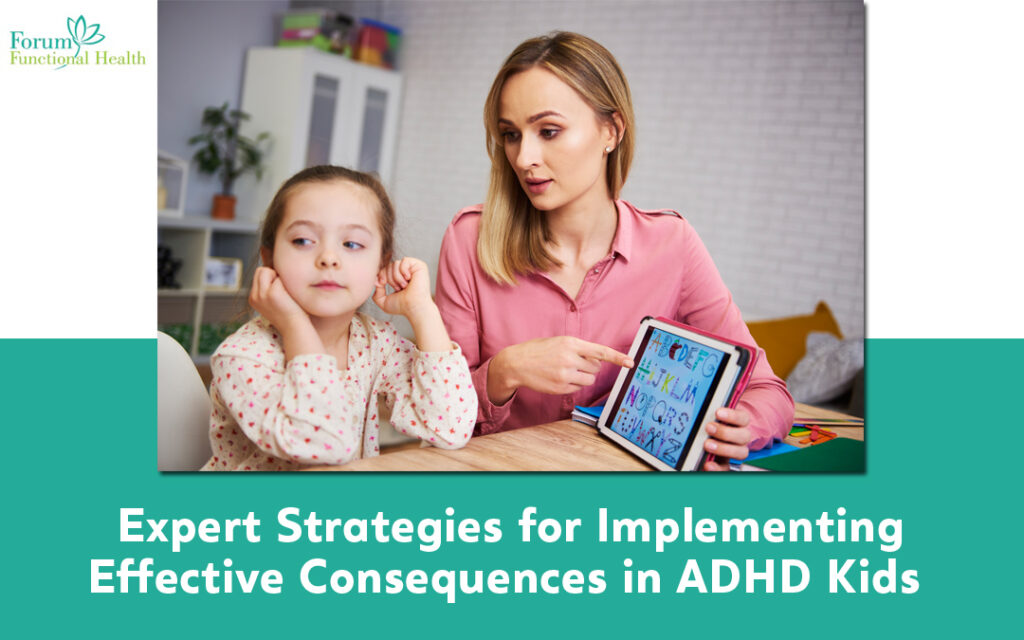Expert Strategies for Implementing Effective Consequences for ADHD Kids

Children with Attention Deficit Hyperactivity Disorder (ADHD) and those who look after them face unique problems in managing the condition. Behavioural strategies must be strategically applied in order to manage ADHD since they provide structure and foster healthy development. This article explores the use of behavioural strategies and, more especially, consequences that are carefully tailored to create an environment that supports the success of kids with ADHD.
Understanding ADHD and Behavioural Challenges
Attention Deficit Hyperactivity Disorder, or ADHD, is a condition that can affect both adults and children. It causes difficulties with organisation, attention, and impulse control, which can have an influence on social relationships and academic achievement, among other aspects of life.
It’s critical to offer kids with ADHD consistent and understandable behavioural tactics. These ought not to be harsh; rather, they ought to be guidelines for developing success-critical abilities. Effective behaviour and emotional regulation in children can be taught through the implementation of routines, expectations, and positive reinforcement.
Managing ADHD requires a structured atmosphere, which must be established. This entails keeping a regular daily schedule and providing a space set aside for work or study that is distraction-free. Tasks can be completed more successfully and with greater attention when broken down into smaller, more manageable steps. This helps to create an environment that is more regulated and organised.
Teaching self-regulation skills to those with ADHD is equally important. They are empowered to regulate impulsivity and improve attention span through practices including deep breathing exercises, mindfulness, and creating attainable goals. Task attention and decision-making abilities are gradually enhanced by the regular application of these techniques.
Creating a supportive environment
The first step in implementing behavioural tactics successfully is to create a supportive atmosphere. Children with ADHD feel more secure when there are clear expectations and consistent routines in place. Encourage a well-organised daily schedule that provides regularity to help reduce stress and impulsivity.
Adapting Penalties to ADHD
A key element of behavioural strategies is consequences. On the other hand, it’s critical to adjust punishments to the specific needs of the child when dealing with ADHD. Put more emphasis on consequences that foster self-awareness and learning than on punitive actions.
Adapting Discipline to ADHD Kids
A key element of behavioural strategies is consequences. On the other hand, it’s critical to adjust punishments to the specific needs of the child when dealing with ADHD. Put more emphasis on consequences that foster self-awareness and learning than on punitive actions.
Positive Reinforcement: Create a system of rewards to incentivize good behaviour. Employ a token or point system so that the child can receive incentives for finishing activities or acting in a way that is suitable. This encouraging feedback fosters self-assurance and motivation.
Time-Outs with Reflection: When disruptive behaviours occur, think about utilising time-outs as a chance for introspection rather than as a form of punishment. Give the youngster a moment to reflect on what they did and talk about other possible courses of action.
Collaborative problem-fixing: Engage the young person in conversations about fixing problems. Together, explore the negative effects of particular actions and come up with some better, more positive solutions.
Instant Feedback: Children with ADHD frequently gain from receiving immediate feedback. As soon as a behaviour happens, give feedback to help reinforce the link between behaviour and outcomes.
Implementing behavioural strategies:
Individualised Behaviour Plans: Create customised behaviour plans in collaboration with educators, therapists, and carers, taking into account the unique requirements and difficulties of each child. These plans ought to be flexible enough to change as the youngster develops.
Communication and Consistency: Develop open lines of communication between parents, teachers, and other professionals involved in the child’s care. This will help ensure consistency. Maintaining consistency in many settings aids in reinforcing behavioural standards, giving the youngster a solid basis.
Teaching Coping Skills: Equip ADHD children with coping skills to manage frustration and impulsivity. Teach them relaxation techniques, mindfulness, or simple exercises to redirect their focus during challenging moments.
Parental Involvement: Engage parents actively in the implementation of behavioural strategies. Provide resources, workshops, and ongoing support to help parents understand and effectively employ these strategies at home.
Developing effective consequences for ADHD children necessitates a deliberate and personalised approach. Carers and educators may help these children succeed by creating a supportive atmosphere, understanding the unique challenges of ADHD, and adopting a balanced mix of positive reinforcement and punishments. Consistency, open communication, and a collaborative approach become essential in fostering a favourable developmental trajectory for ADHD children, ultimately allowing them to thrive in various facets of their lives.
When it comes to providing Forum Functional Healthcare support for ADHD, a licenced functional medicine practitioner uses a comprehensive strategy to pinpoint possible hyperactive triggers. This entails investigating elements that are frequently linked to children’s hyperactivity, such as poor digestion, dietary and environmental allergens, abnormalities in fatty and amino acids, nutritional deficits, and heavy metal toxicity. Remarkably, data suggest that children who exhibit hyperactivity often get recurrent ear infections. Antibiotic therapy for certain diseases may result in dysbiosis, which can change the usual flora in the gut and cause inflammation in the brain. For complete ADHD management, addressing these underlying problems with practical healthcare measures becomes essential.
